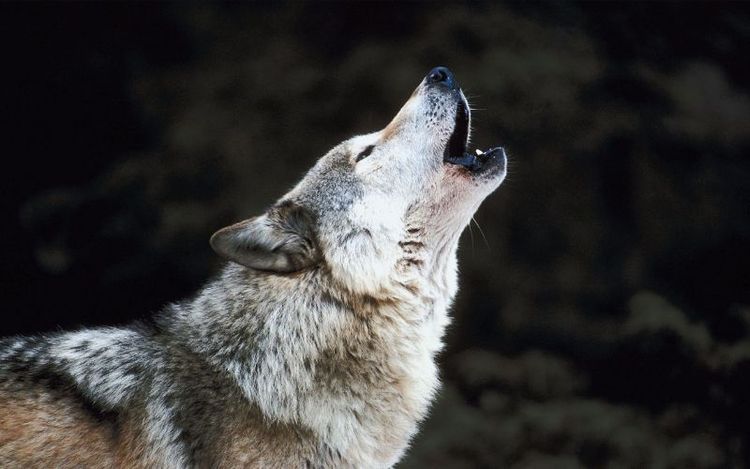Fight for Justice: Protecting Wolves Like Theia from Brutalities in Wyoming

The heartbreaking tale of a juvenile wolf in Wyoming, known as Theia to some, has gained significant interest and provoked anger.
This young wolf was hit by a heavy snowmobile weighing 700 pounds, with her mouth closed with tape. She was then displayed, alive but with serious injuries, at a nearby bar before being ultimately killed outside.
The violence of this deed has surprised many, but another disturbing fact is that it was perfectly within the bounds of the law. In Wyoming, gray wolves do not have the protection of the Endangered Species Act (ESA), making them easy targets for such malicious actions.
Data shows that in Wyoming, wolves can be legally hunted in 85 percent of the state. This allows people to shoot, trap, or hit wolves without getting in trouble with the law. Wolves are important for keeping our environment healthy and are also culturally important to many Native American groups.
Theia's only hope for safety was a swift end, since the state's regulations prioritize the speed of an animal's death over the suffering it may endure.
Wolves are very important in keeping the balance of nature. As the top predators, they control the numbers of animals they eat like deer and elk. This stops too much grazing and helps different kinds of plants and animals survive.
Having wolves in an ecosystem can cause a trophic cascade, where their hunting has a ripple effect on the entire ecosystem, helping many other species like plants, birds, and even fish.
Bringing back wolves to Yellowstone National Park in the 1990s is a great example of this. When wolves were not present, elk were eating too much grass along the rivers, which caused the land to erode and plants to die. But when the wolves returned, they started hunting the elk, which allowed the plants to grow back. This helped to keep the riverbanks strong and gave other animals a place to live.
In many Native American tribes, wolves are seen as very important and have a lot of meaning in their culture and spirituality. Wolves are respected in Native American stories and are thought to represent qualities like power, faithfulness, and resilience. They are viewed as family, and keeping them safe is connected to keeping their traditions alive.
One example of this is how the Ojibwe community sees wolves as family members. They believe that the status of wolf populations is connected to the health of their tribe. The disappearance of wolves is not only a environmental disaster but also a loss of heritage and relationship with the earth.
The absence of safeguards for wolves, demonstrated by Theia's heartbreaking death, is not simply a legal mistake—it is a failure to acknowledge the significance of wolves in our ecosystems and in the traditional heritage of Native American communities.
The Endangered Species Coalition is taking the lead in advocating for this cause. They are collaborating with local partners in Wyoming and various other states to advocate for increased protections at both state and national levels.
They are working hard to gather support from Congress to protect wolves, inviting specialists to speak up for these animals in Washington, DC, and rallying a large number of activists to push decision-makers to take action.
Data indicates that when wolves are safeguarded, whole ecosystems flourish. However, when they are not shielded, like in the case of Wyoming, the outcomes are severe. This not only impacts the wolves but also affects the environment's well-being and the cultural significance attached to these magnificent animals.
Weekly Native News (August 25, 2024): Updates from Washington D.C. Weekly Native News (August 4, 2024): Updates from Washington D.C. Interview with Tribal President Jeff Stiffarm and Native Advocate Tom Rodgers on Native Bidaské President Trump gives a speech at the National Guard Association event in Detroit
After reading the final report from the U.S. Department of the Interior, the team at Native News Online took a moment to look back on the hard work we've put into shedding light on the painful history of Indian boarding schools. We have attended all 12 Road to Healing events and written more than 250 articles to amplify the stories of survivors and bring attention to the lasting effects on Indigenous communities. Our mission is far from over. If you would like to support our efforts in continuing to cover this important issue, please consider making a donation.
Writer: Kaili Berg Contact: Please enable JavaScript to view email address
Kaili Berg is a belonging to the Alutiiq/Sugpiaq Nation and holds shares in Koniag, Inc. She works as a reporter for Native News Online and Tribal Business News. Based in Wisconsin, Berg used to write for the Ho-Chunk Nation newspaper, Hocak Worak. She initially studied nursing in college but switched to communications at Western Technical College in Lacrosse, Wisconsin, after discovering her passion for it.









































